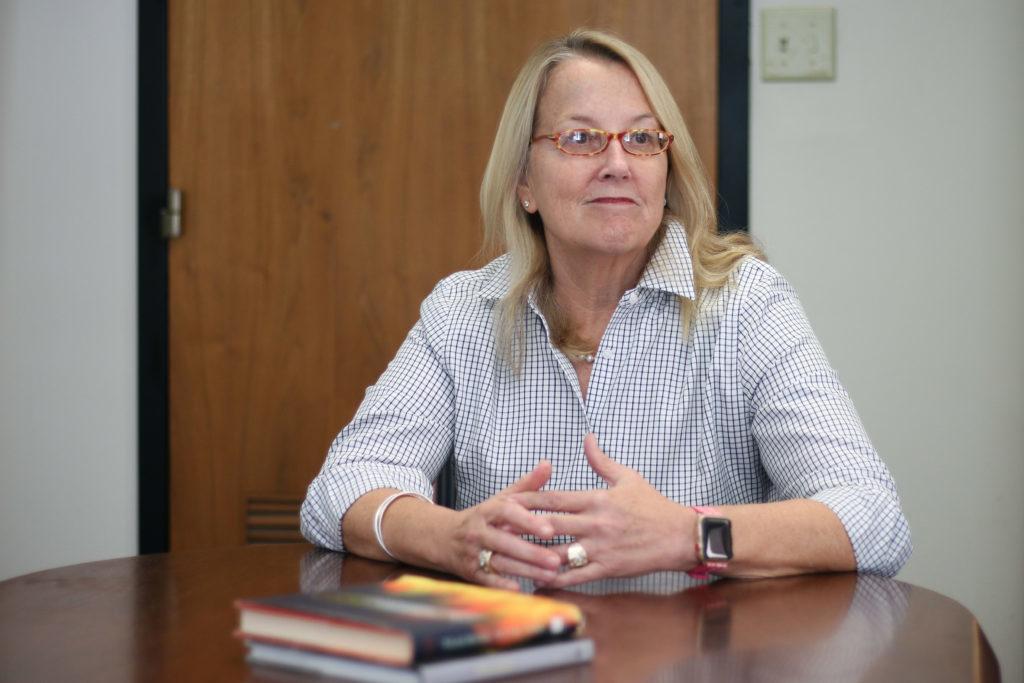A survey published last week in The New York Times revealed that student affairs officials tend to lean left – but the verdict isn’t surprising to GW administrators.
Samuel Abrams, a professor of politics at Sarah Lawrence College, conducted a report over the past two years surveying roughly 900 “student-facing” administrators and found that the majority of officials tend to be more left-leaning than faculty. But officials said they aren’t surprised by the report’s findings because student affairs professionals “tend to be progressive” to cater to different perspectives within the student body.
“Student needs tend to be ever-evolving and change over time, and student affairs professionals need to have the flexibility to adapt and change with them,” Cissy Petty, the dean of the student experience, said in an email.
Petty said while she didn’t read the survey conducted by Abrams, she read an Inside Higher Education article summarizing the research and said she “echoed” other student affairs experts in that officials’ jobs entail “helping our students explore and learn more about equity, gender and inclusiveness.”
Petty retweeted the article last week with the caption “breaking news” and a rolling-eyes emoji.
“I know we are in Washington, which is the center of politics, but in the few months since I have been here, the conversations I have had with my colleagues are about how we can work together to be there for all of our students, not about our political ideology,” she said.
GW has often been marked as a generally liberal-leaning campus featuring the largest College Democrats chapter in the country. Conservative students have often considered GW’s student body as dominated by liberal students, as seen in its student government and general student body, they said.
Political student leaders said that while student affairs officials may be more liberal, their political affiliation does not have an effect on organizations’ operations or impact on the student body.
“We’ve had nothing but positive experiences with student affairs leaders who have worked with our organization,” Cole Perry, the chairman of the College Republicans, said. “Regardless of political leanings, they’ve been incredibly helpful and supportive to GW College Republicans.”
Bridget Anzano, the president of College Democrats, said the political ideology does not have any effect on the organization’s operations because they work with advisers to plan events and programming, not discuss politics. She said left-leaning officials could be a representation of a generally liberal student body because younger demographics of people tend to lean Democratic.
“I don’t think we’re receiving any benefits from being a left-leaning org,” she said. “If the study found that administrators are more left-leaning, that would be more reflective of the student body, but I haven’t noticed that affecting the way we run our org day to day.”
Student affairs experts said the report demonstrates that college campuses need to cater to multiple different political ideologies because officials’ left-leaning ideology could only serve liberal students, hindering administrators’ abilities to understand multiple perspectives.
Abrams, the professor who conducted the study, said conservative students could have a “limited college experience” if they are the political minority on campus because students come to campus to learn – a process that could be hindered if all students have the same political ideology.
He said that at schools where the majority of student affairs officials are liberal, students could experience “groupthink” – an echo chamber of students and administrators that share similar views.
“I still like to say that we, as a country, are very good people,” he said. “But when you live in an echo chamber and a bubble and fail to hear the other side, you can become more radicalized and more intolerant. And colleges are an antidote to that.”
Kevin Kruger, the president of NASPA, Student Affairs Administrators in Higher Education, told Inside Higher Education that historically, universities tend to bring in relatively progressive students, and officials try to promote “an equal and open dialogue” among political ideologies.
“Are students treated fairly? Are different perspectives given equal footing? I would say there is no evidence to suggest that students affairs professionals block more conservative speech,” Kruger said.
John Banzhaf, a public interest law professor, said only exposing students to liberal administrators could shift students’ ideology over their college career, creating a bubble of peers and officials with similar mindsets. He said a large number of liberal student affairs officials at GW is not surprising because “we like to hire and work with people who are like us, who share our views.”
Banzhaf said student affairs officials who lean liberal could also be more lenient with students who behave inappropriately, pointing to a protest at the Board of Trustees meeting Friday, when members of Fossil Free GW interrupted University President Thomas LeBlanc’s speech to demand that the University divest from fossil fuels.
“On GW’s campus, as well as elsewhere, is this refusal or reluctance to punish people who disrupt on the left,” he said. “Because so many administrators and bureaucrats who do the investigations and do the hearings and so on support those views, they’re much less likely to crack down.”
Sarah Roach contributed reporting.



